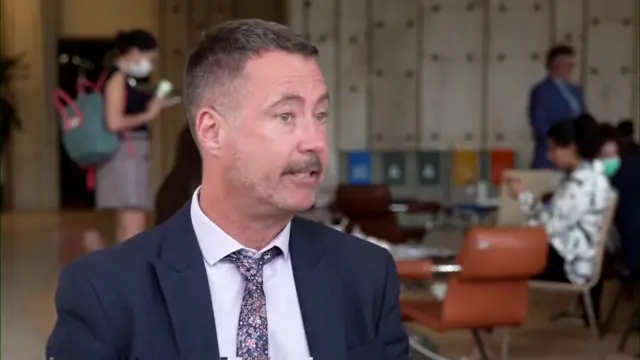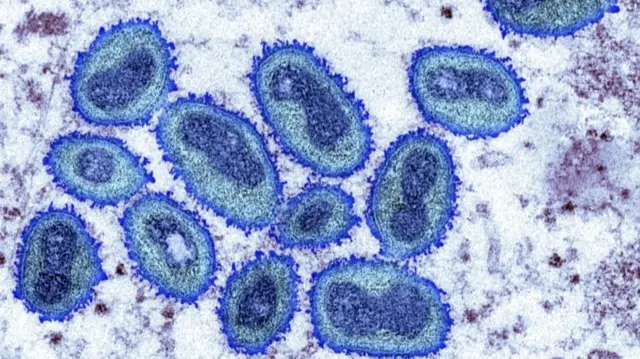Monkeypox is a 'containable disease'published at 14:35 BST 23 May 2022
Asked whether the monkeypox outbreak is a global health emergency, Dr Maria Van Kerkhove from the WHO, says "it is a containable situation".
She said it can be particularly contained in countries where outbreaks are happening across Europe and north America right now "but we can't take our eye off the ball on what's happening in endemic countries".
"Transmission is really happening from skin-to-skin contact, most of the people who have been identified have more of a mild disease," she says.









